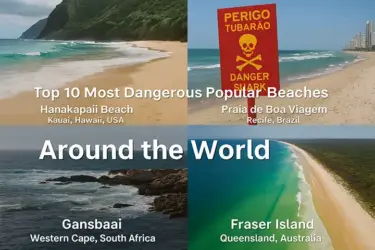Scuba Diving for Beginners: Helpful Tips for Your First Dive Trip
Everyone’s reasons for taking up scuba diving are unique. Some people are fascinated by wildlife, while others are looking for new ways to push themselves and overcome fears. Whatever the reason, there are some things you should think about before embarking on a new adventure. Here are some beginner scuba diving tips.
Make a splash

Whatever your reason for wanting to start diving, it’s critical that you feel at ease in the water. You must be able to tread water/float for 10 minutes and swim 200 meters as part of your first diving course (the PADI Open Water Scuba Diver certification or equivalent).
If you’re not sure you can do it in the ocean, a couple of sessions in the pool before you start your course will give you a lot more confidence.
Open your eyes
Try opening your eyes underwater while practicing your swimming in the pool. Many people are afraid of opening their eyes in water, but it doesn’t hurt and you can still see surprisingly well. During your course, you will be required to be underwater for 1 minute without a mask on and to swim without a mask.
The more comfortable you are with keeping your eyes open underwater, the less stress you will experience during the course.
Before you buy, try it out
Before you book a flight and spend thousands of dollars on a once-in-a-lifetime diving vacation only to arrive and wonder if it’s really for you, contact a local dive center and schedule a “try dive” session in the pool. These are usually done in the evenings or on weekends and only take a couple of hours. You’ll learn some fundamental theory, practice a few skills, and enjoy the freedom of breathing underwater.
Choose a location

There are numerous factors to consider if you intend to travel specifically to learn to dive. Currents, visibility, and water temperature are the most important diving factors to consider. You can eliminate a lot of stress from diving by choosing a location with the right conditions.
For example, diving in Greece in the summer with no currents, 30m+ visibility, and 27-degree water is much easier than diving in the UK with strong currents, 5m or less visibility, and cold water that requires dry suits at times.
Another factor to consider is what you want to see on your dives. Different species thrive in different habitats, so if you want to see a turtle, make sure you go somewhere where they are common.
Locate a dive center
Reading reviews is the simplest way to find the best dive center in your chosen location. Go online and do your homework. There are numerous excellent online forums where people are eager to share their knowledge and experiences. Another excellent resource is the Girls That Scuba Facebook page, where beginners are encouraged to ask questions and more experienced divers are eager to assist.
Managing time
If you choose a dive center that offers PADI courses, you can structure your course in a variety of ways. You can complete it all while on vacation, which takes about four days, or you can do eLearning and finish the theory in the comfort of your own home before you go, saving you a day in the classroom.
Another option, which requires a little more planning, is to complete the theory and pool work at home before traveling abroad and doing the four open water dives somewhere nice. This is ideal if you have limited vacation time and would prefer to take things slowly.
Don’t buy anything just yet
You do not need to purchase any equipment before beginning your course. Of course, a mask or a pair of boots are fine, but avoid purchasing anything large, such as buoyancy control devices or regulators, until you’ve completed a few dives.
It will take some time to determine what you are looking for in your equipment, and your requirements will change over time as different interests come and go. It’s a lot of money to spend, so make sure you’ll be using your equipment on a regular basis. If you only plan to dive once a year, renting equipment may be a better option.
Scuba diving is a serious sport

Remember that, even if you’re on vacation, diving is a serious sport that requires your full attention to avoid accidents. Check that you got a good night’s sleep, that you ate something in the morning, and that you didn’t drink too much alcohol the night before. All of these factors not only affect how much you enjoy your dives (hangovers and boats are not a good combination! ), but they can also increase your risk of decompression sickness.
Although diving accidents are uncommon, make sure you have comprehensive medical insurance that covers all of your activities while you’re away. Before you book your next vacation, learn about the essentials of travel insurance.
Always be curious!
Understanding all of the physics at work, as well as your equipment, is a big part of feeling safe while diving. If you don’t understand or can’t remember something, ask your instructor! They’ve almost certainly heard it before, and there is no such thing as a stupid question. Instructors would rather explain something to you again than have you become anxious.
Best places to go diving
Ecuador

Ecuador ranks highly in the scuba industry as the gateway to one of the world’s best scuba destinations, the Galápagos Islands. The disadvantage? The cost. With park fees, accommodations, flights, and diving, getting to the Galápagos and scuba diving there is a significant investment, but it is well worth it! Shivers (a group of sharks) of hammerheads, playful seals and penguins, manta rays, dolphins, and pretty much everything in between can be found here. Can’t afford it right now? What about the “poor man’s Galápagos”? Isla de la Plata is one of the closest (but still quite far) islands to the same waters as the Galápagos, where you can see some of the same underwater flora and fauna.
Cyprus

If diving is only a part of your vacation, Cyprus has so much more to offer than great diving. Explore ruins, pick olives, party in Ayia Napa, or visit water parks in Paphos; the options in Cyprus are limitless. It’s the ideal place to learn, with beautiful visibility and no currents, and there’s something for everyone.
Tioman Island, Malaysia

Tioman Island, located off Malaysia’s south-east coast, is ideal for a relaxing diving vacation focused solely on diving. Take a ferry from Mersing or Tanjung Gemok to a beautiful tropical island, where you’ll stay in tiny villages with no cars and only limited Wi-Fi. Dive all day, then spend the evening at intimate beach restaurants and bars talking about diving. Everyone there lives and breathes diving, and every visitor falls in love with the island.




















